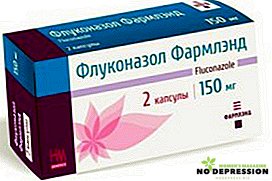Angina is a disease that is characterized by inflammation of the tonsils. This pathology develops under the influence of various bacteria, fungi and viruses, but most often the causative agent becomes hemolytic streptococcus. Treatment of angina is carried out using various methods and means with the mandatory prescription of antibiotics.

Causes and Symptoms of Sore Throat
Most often, acute tonsillitis develops under the influence of various microbes that enter the human body. In most cases, the cause of angina are streptococci, affecting the pharynx.
Often, microorganisms living in the oral cavity, are activated when creating favorable conditions for their development. Strong hypothermia or sharp fluctuations in ambient temperature can provoke the appearance of angina.
The development of the inflammatory process can be caused by various irritants that systematically enter the pharynx. Sore throat is often diagnosed in patients who abuse alcohol and suffer from frequent nasopharyngeal pathologies. Often the cause of acute tonsillitis is hidden in purulent inflammatory processes that take place in the nasal cavity or its paranasal sinuses.
Angina can be accompanied by symptoms such as:
 severe pain in the throat;
severe pain in the throat;- discomfort when swallowing;
- fever;
- redness of the throat and pharynx;
- pain in the joints and muscles;
- loss of appetite or lack of it;
- body aches;
- general weakness and malaise.
A patient with acute tonsillitis has an enlarged lymph nodes located in the neck. In addition, with such a pathology, ulcers form on the tonsils that deliver severe discomfort to the patient. A sore throat is considered a complex and dangerous disease, which, in the absence of effective therapy, can lead to the development of complications.
Treatment of angina depending on its shape
In case of uncomplicated angina, the treatment is carried out at home. In the case of paratonsillar abscess, hospitalization of the patient is indicated in a medical institution with subsequent dissection and suction of pus.
Herpangina in adults
 The treatment of herpetic angina in adults takes place in several stages and involves the use of the following medications:
The treatment of herpetic angina in adults takes place in several stages and involves the use of the following medications:
- Antihistamines help eliminate edema and ease the course of the disease. Usually prescribed such drugs as Suprastin, Dimedrol, Fenkrol and Diazolin.
- Bactericidal and analgesic fluids help eliminate rashes on the mucous membrane. Sore throat therapy is performed using Lugol, Ingalipt and Hexoral solutions.
- Antipyretic drugs help reduce body temperature and alleviate the patient's condition.
Antiviral treatment of herpetic tonsillitis is carried out only if there is a risk of developing complications with a greatly weakened immunity. The use of drugs such as Viferon, Genferon, Acyclovir and Cycloferon is prescribed.
Follicular sore throat
In the treatment of follicular angina, the main focus is on eliminating the inflammatory process in the tonsils and adjacent tissues. For this purpose are usually assigned:
 Mode. You must comply with bed rest, proper nutrition and limitation of physical activity.
Mode. You must comply with bed rest, proper nutrition and limitation of physical activity.- Etiotropic therapy. In case of bacterial disease, the use of penicillin antibiotics, macrolides and cephalosporins is shown. When the fungal etiology of tonsillitis is prescribed drugs with antifungal action, that is Fluconazole, Itraconazole and others.
- Symptomatic treatment. For the relief of an infectious-allergic process, antihistamines and non-steroidal anti-inflammatory drugs may be prescribed. In addition, immunomodulators and vitamins are prescribed.
In the treatment of follicular angina, rinsing with antiseptic agents and physiotherapy is widely used.
Purulent tonsillitis
During the treatment period, all food should be soft and warm, thus avoiding the trauma of the inflamed mucosa. In addition, it is shown abundant drink in the form of milk with honey, fruit drinks and mineral water without gases.
Drug therapy for purulent tonsillitis involves the conduct of such activities as rinsing and irrigation of the oral cavity with various antiseptic solutions. In addition, it is shown carrying out inhalation with the use of drugs and oral medication.
 The basis of the treatment of purulent tonsillitis is the reception of antibiotics, and you should not neglect such treatment. The fact is that a bacterial infection can spread from the tonsils to other vital organs, leading to the development of dangerous complications.
The basis of the treatment of purulent tonsillitis is the reception of antibiotics, and you should not neglect such treatment. The fact is that a bacterial infection can spread from the tonsils to other vital organs, leading to the development of dangerous complications.
The treatment of purulent tonsillitis is usually prescribed the following potent drugs:
- Amoxiclav;
- Augmentin;
- Cefuroxime;
- Zinnat;
- Azithromycin;
- Erythromycin.
It is necessary to take antibiotics for another 3 days after body temperature returns to normal. In addition to antibiotic therapy, topical sprays and lozenges with anesthetic and anti-inflammatory effects can be prescribed.
Features of antibiotic treatment
In the treatment of angina, antibacterial drugs are prescribed only by a doctor, taking into account the type of pathogen that provoked the disease. In addition, the individual condition of the patient, his general state of health, the state of the immune system and the presence of allergies are necessarily evaluated. When treating a disease, three groups of antibiotics are usually used:
- penicillin group drugs;
- macrolides;
- cephalosporins.

Penicillin preparations are considered to be particularly effective in treating acute tonsillitis, but in some cases they can cause an allergic reaction. In such a situation, macrolide is used in the treatment of the disease. In the absence of a positive result with the use of such antibiotics, treatment with drugs from the group of cephalosporins or fluoroquinolones is indicated. Their help is resorted to only in extreme cases, since they negatively affect the state of the immune system and can provoke addiction.
The following antibiotics may be prescribed for treating sore throats:
- Sumamed;
- Bactrim;
- Tetracycline;
- Cephalexin;
What drug is indicated for use in the treatment of angina, determines the doctor after a thorough examination of the patient.
Treatment of angina folk remedies at home

Drug treatment of angina in adults is recommended to be combined with the use of traditional medicine. With their help, it is possible not only to destroy microorganisms, but also to eliminate unpleasant symptoms.
Relieve the condition and get rid of the sore throat by using the following folk remedies:
- Take a few slices of lemon and keep them in your mouth so that it is located at the very throat. After should dissolve the lemon slices and swallow the juice. It is necessary to carry out such procedure every hour.
- It is recommended to rinse the sore throat with freshly squeezed beet juice. It is necessary to grate a small root vegetable and squeeze the juice. To a glass of the resulting liquid you need to add a tablespoon of vinegar and rinse the throat with a solution several times during the day.
- If you have a sore throat, you can boil the potatoes in your uniform and inhale the vapors for several minutes. After that, you can make a compress from the drained water and apply it to the throat area. To enhance the effectiveness of the procedure, you can rub the soles of garlic and wear warm socks.

It is recommended to gargle every two hours with soda-saline solution with the addition of a few drops of iodine. A good effect in the treatment of acute tonsillitis gives an infusion of calendula and chamomile. For its preparation, it is necessary to mix dry herbs in equal proportions and pour 3 tablespoons of such a mixture with boiling water. Such a folk remedy should rinse your sore throat every hour during the day.
Relieve pain in the throat with a mixture prepared from 100 grams of honey and 30 ml of olive oil. This mixture must be taken orally before meals for 1 teaspoon and quickly dissolve until completely dissolved. After that, you are not allowed to drink anything for 20 minutes.
Angina during pregnancy
During pregnancy, the woman's body is especially susceptible to various infectious diseases, including angina. This pathology can adversely affect fetal development. The difficulty of treating angina during pregnancy is that taking many drugs is prohibited.
 In the event that a woman became ill with acute tonsillitis in the first days of pregnancy, fetal death could be prenatal. At a later date, such a pathology can provoke primary placental insufficiency. The danger of pathology for a pregnant woman lies in the fact that there is a high probability of fetal hypoxia, a delay in its development and a premature onset of labor.
In the event that a woman became ill with acute tonsillitis in the first days of pregnancy, fetal death could be prenatal. At a later date, such a pathology can provoke primary placental insufficiency. The danger of pathology for a pregnant woman lies in the fact that there is a high probability of fetal hypoxia, a delay in its development and a premature onset of labor.
In addition, a child may form various deformities in the event that a woman falls ill during periods of particular importance for the laying of organs.
Treatment of angina during pregnancy is carried out under the mandatory supervision of a physician, and it is necessary to seek medical help at the first manifestations of the disease.
Usually women are assigned to:
- adherence to a special diet and daily routine;
- use of antiseptic drugs of local action;
- taking antipyretic, analgesic and anti-inflammatory drugs;
- vitaminization of the body.
It is important to remember that many potent drugs are contraindicated during pregnancy. For this reason, taking antibiotics is permitted only as directed by the attending physician.
Possible complications
Angina is a disease that can lead to the development of dangerous complications. One of them is considered paratonsillar abscess, which is a kind of continuation of angina. With this pathological condition of the body, purulent exudate penetrates the fiber, located next to the amygdala on the neck.
A dangerous complication is mediastinitis, in which the pus penetrates into the deep sections of the neck and goes down to the mediastinum. Such a condition is considered dangerous to the life of the patient and requires compulsory surgery.
With streptococcal quinsy, complications such as scarlet fever, rheumatic fever, septic arthritis and acute glomerulonephritis can occur. With a strong swelling of the tonsils, the entrance to the larynx may overlap, which seriously complicates breathing, especially in young children.
Methods of maintaining immunity for the prevention of angina
Prevention of sore throat is in maintaining personal hygiene and sanation of the oral cavity. In addition, you need to pay attention to the elimination of the causes that caused breathing problems, nutrition and strengthening of the immune system. This can be achieved with the help of hardening of the body, physical education and compliance with the correct mode of rest and work.


 severe pain in the throat;
severe pain in the throat; Mode. You must comply with bed rest, proper nutrition and limitation of physical activity.
Mode. You must comply with bed rest, proper nutrition and limitation of physical activity. A dangerous complication is mediastinitis, in which the pus penetrates into the deep sections of the neck and goes down to the mediastinum. Such a condition is considered dangerous to the life of the patient and requires compulsory surgery.
A dangerous complication is mediastinitis, in which the pus penetrates into the deep sections of the neck and goes down to the mediastinum. Such a condition is considered dangerous to the life of the patient and requires compulsory surgery.








